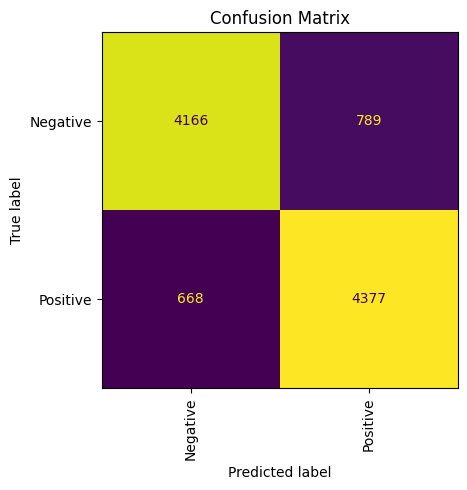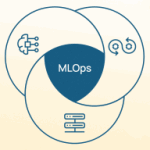# Путь до корневой папки проекта _относительно папки запуска этого скрипта_
import os
ABSOLUTE_PATH = os.path.abspath("../../")Частотный анализ на базе TF-IDF
Частотный анализ на базе TF-IDF
- TF (term frequency) - отвечает за частоту встречаемости слова в текущем сообщении
- IDF (inverse document frequency) - отвечает за “редкость” слова, насколько слово редко встречается в других сообщениях
Перед запуском ноутбука запустите MLflow Server в консоли:
mlflow server --host 127.0.0.1 --port 8080
# Параметры для данного ноутбука (не нужны в общем конфиге)
TASK_NAME = "TF/IDF Embeddings"
EXPERIMENT_NAME = "Embedding_50K_v2"
RUN_NAME = "tfidf_embeddings" # Часть пути, без пробелов и спецсимволов!Загружаем параметры из файла конфигурации
from hydra import compose, initialize
from hydra.core.global_hydra import GlobalHydra
from omegaconf import OmegaConf
GlobalHydra.instance().clear()
# Hydra context initialization
initialize(version_base=None, config_path=".", job_name=TASK_NAME)
cfg = compose(config_name="config")
# print(OmegaConf.to_yaml(cfg))Загружаем датасет
import os
import polars as pl
data = pl.read_csv(
os.path.join(ABSOLUTE_PATH, cfg.paths.data, cfg.files.train_data),
has_header=False,
new_columns=["Polarity", "Title", "Review"],
n_rows=cfg.params.nrows,
)
pl.Config.set_fmt_str_lengths(100)
data.head(3)
shape: (3, 3)
| Polarity | Title | Review |
|---|---|---|
| i64 | str | str |
| 2 | "Stuning even for the non-gamer" | "This sound track was beautiful! It paints the senery in your mind so well I would recomend it even t… |
| 2 | "The best soundtrack ever to anything." | "I'm reading a lot of reviews saying that this is the best 'game soundtrack' and I figured that I'd w… |
| 2 | "Amazing!" | "This soundtrack is my favorite music of all time, hands down. The intense sadness of "Prisoners of F… |
data = data.select('Polarity', 'Review').with_columns(
pl.col("Polarity").map_elements(
lambda polarity: "Negative" if polarity == 1 else "Positive"
)
)/tmp/ipykernel_1651/553745447.py:1: MapWithoutReturnDtypeWarning: Calling `map_elements` without specifying `return_dtype` can lead to unpredictable results. Specify `return_dtype` to silence this warning.
data = data.select('Polarity', 'Review').with_columns(Проверяем, что датасет сбалансирован по отзывам
data['Polarity'].value_counts()
shape: (2, 2)
| Polarity | count |
|---|---|
| str | u32 |
| "Positive" | 25506 |
| "Negative" | 24494 |
Предобработка текста и лемматизатор
ВАЖНО: не использовать этот лемматизатор для русского языка, т.к. уничтожит падежи!
from nltk.corpus import stopwords
import nltk
import re
nltk.download('wordnet')
nltk.download("stopwords")
# Предварительная компиляция шаблонов регулярок - ускорение в ≈60 раз
stop_words = set(stopwords.words("english"))
url_pattern = re.compile(r"https?://\S+|www\.\S+|\[.*?\]|[^a-zA-Z\s]+|\w*\d\w*")
spec_chars_pattern = re.compile("[0-9_-]+")
non_alpha_pattern = re.compile("[^a-zA-Z]+")
def preprocessing(input_text: str) -> str:
text = input_text.lower() # приведение к нижнему регистру
text = url_pattern.sub("", text) # убираем ссылки
text = spec_chars_pattern.sub(" ", text) # убираем спец символы
text = non_alpha_pattern.sub(" ", text) # оставляем только буквы
text = " ".join([word for word in text.split() if word not in stop_words])
return text.strip()
data = data.with_columns(
pl.col('Review').map_elements(preprocessing).str.split(' ').alias('corpus')
)
data.head(3)[nltk_data] Downloading package wordnet to
[nltk_data] /teamspace/studios/this_studio/nltk_data...
[nltk_data] Package wordnet is already up-to-date!
[nltk_data] Downloading package stopwords to
[nltk_data] /teamspace/studios/this_studio/nltk_data...
[nltk_data] Package stopwords is already up-to-date!
sys:1: MapWithoutReturnDtypeWarning: Calling `map_elements` without specifying `return_dtype` can lead to unpredictable results. Specify `return_dtype` to silence this warning.
shape: (3, 3)
| Polarity | Review | corpus |
|---|---|---|
| str | str | list[str] |
| "Positive" | "This sound track was beautiful! It paints the senery in your mind so well I would recomend it even t… | ["sound", "track", … "listen"] |
| "Positive" | "I'm reading a lot of reviews saying that this is the best 'game soundtrack' and I figured that I'd w… | ["im", "reading", … "penny"] |
| "Positive" | "This soundtrack is my favorite music of all time, hands down. The intense sadness of "Prisoners of F… | ["soundtrack", "favorite", … "stars"] |
from nltk.stem import WordNetLemmatizer
def lemmatize(input_frame: pl.DataFrame) -> pl.DataFrame:
lemmatizer = WordNetLemmatizer()
return input_frame.with_columns(
pl.col("corpus").map_elements(
lambda input_list: [lemmatizer.lemmatize(token) for token in input_list]
)
)
processed_data = lemmatize(data)
processed_data.head(3)/tmp/ipykernel_1651/2055772167.py:6: MapWithoutReturnDtypeWarning: Calling `map_elements` without specifying `return_dtype` can lead to unpredictable results. Specify `return_dtype` to silence this warning.
return input_frame.with_columns(
shape: (3, 3)
| Polarity | Review | corpus |
|---|---|---|
| str | str | list[str] |
| "Positive" | "This sound track was beautiful! It paints the senery in your mind so well I would recomend it even t… | ["sound", "track", … "listen"] |
| "Positive" | "I'm reading a lot of reviews saying that this is the best 'game soundtrack' and I figured that I'd w… | ["im", "reading", … "penny"] |
| "Positive" | "This soundtrack is my favorite music of all time, hands down. The intense sadness of "Prisoners of F… | ["soundtrack", "favorite", … "star"] |
Разбиваем на тренировочную и тестовую выборки, получаем признаки для train и test
from sklearn.feature_extraction.text import TfidfVectorizer
from sklearn.linear_model import LogisticRegression
from sklearn.model_selection import train_test_split
vectorizer_params = {
"max_features": cfg.params.max_features,
"analyzer": "word"
}
tfidf_vectorizer = TfidfVectorizer(**vectorizer_params)
train, test = train_test_split(
processed_data,
test_size=cfg.params.test_size,
shuffle=cfg.params.shuffle,
random_state=cfg.params.random_state,
)
tfidf_vectorizer.fit(train["corpus"].to_pandas().astype(str))
train_features = tfidf_vectorizer.transform(train["corpus"].list.join(" ").to_numpy())
test_features = tfidf_vectorizer.transform(test["corpus"].list.join(" ").to_numpy())Вспомогательный код для отрисовки Confusion матрицы
import numpy as np
from matplotlib import pyplot as plt
from matplotlib.figure import Figure
from sklearn.metrics import (
ConfusionMatrixDisplay,
)
def conf_matrix(y_true: np.ndarray, pred: np.ndarray) -> Figure:
plt.ioff()
fig, ax = plt.subplots(figsize=(5, 5))
ConfusionMatrixDisplay.from_predictions(y_true, pred, ax=ax, colorbar=False)
ax.xaxis.set_tick_params(rotation=90)
_ = ax.set_title(f"Confusion Matrix")
plt.tight_layout()
return figИспользуем MLflow для логирования результатов обучения логистической регрессии
import mlflow
from sklearn.metrics import classification_report
# Подключение к серверу MLflow
mlflow.set_tracking_uri("http://127.0.0.1:8080")
# Зафиксируем текущее название эксперимента
mlflow.set_experiment(EXPERIMENT_NAME)
with mlflow.start_run(run_name=RUN_NAME) as run:
model_params = {
"random_state": cfg.params.random_state,
"multi_class": "multinomial",
"solver": "saga",
}
model_lr = LogisticRegression(**model_params)
model_lr.fit(train_features, train["Polarity"])
predicts = model_lr.predict(test_features)
report = classification_report(test["Polarity"], predicts, output_dict=True)
# логирование метрик из classification report
mlflow.log_metric("accuracy", report.pop("accuracy"))
for class_or_avg, metrics_dict in report.items():
if class_or_avg == 'macro avg':
break
for metric, value in metrics_dict.items():
mlflow.log_metric(class_or_avg + '_' + metric, value)
# Логирование параметров модели
mlflow.log_params(vectorizer_params)
mlflow.log_params(model_params)
# Логирование целой модели для переиспользование
mlflow.sklearn.log_model(
sk_model=model_lr,
input_example=test_features[:10],
artifact_path=f"mlflow/{RUN_NAME}/model"
)
# Получение confusion matrix на два класса
fig = conf_matrix(test["Polarity"], predicts)
# Логирование фигур или целых артефактов
mlflow.log_figure(fig, f'{RUN_NAME}_confusion_matrix.png')2024/05/19 18:22:30 INFO mlflow.tracking.fluent: Experiment with name 'Embedding_50K_v2' does not exist. Creating a new experiment.
